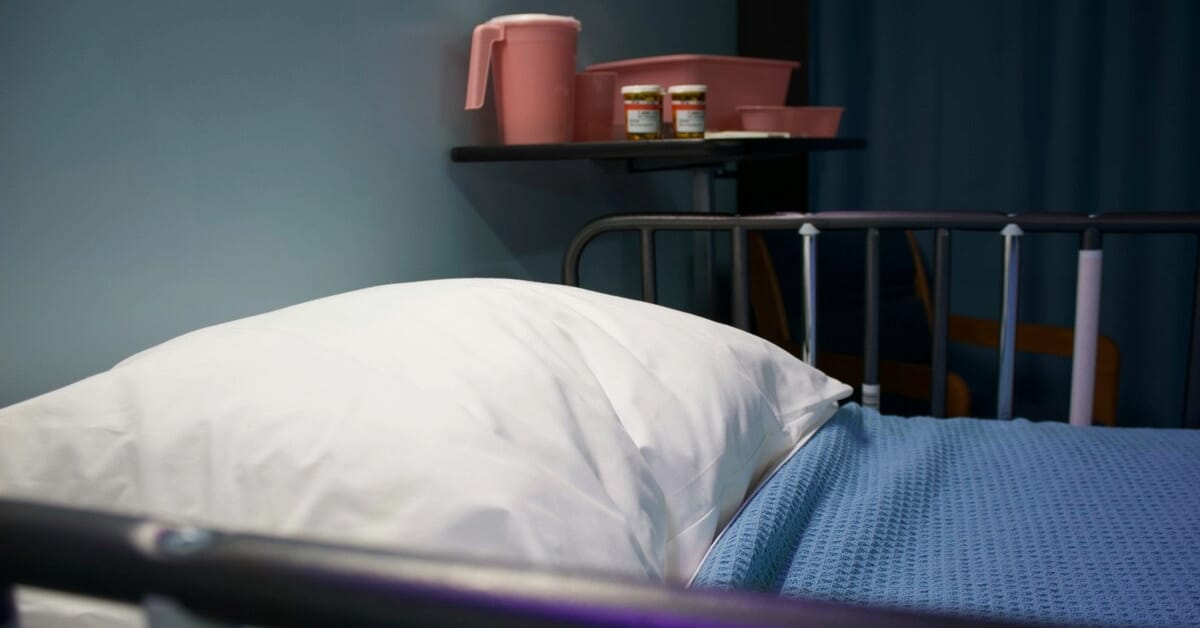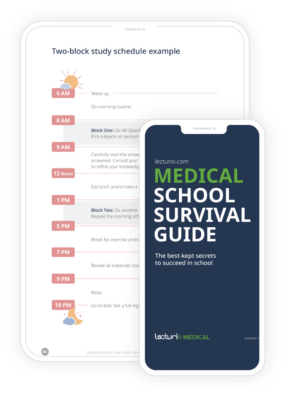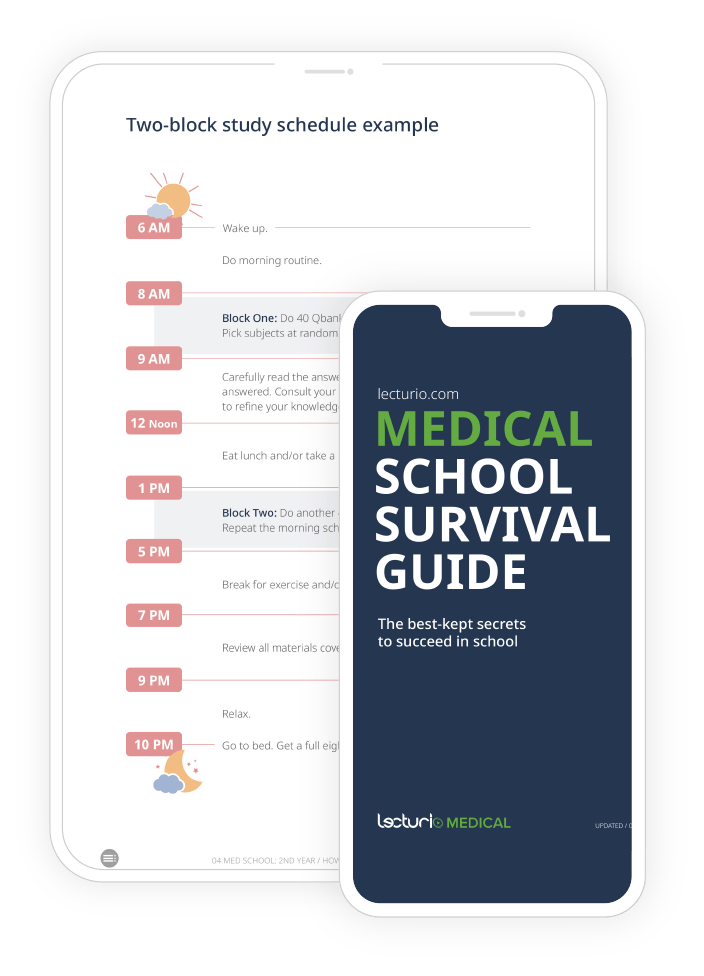When you’re a student, you don’t come face-to-face with death until you lose someone close to you or you enter the hospital setting.
The classroom doesn’t prepare you enough for the first time you truly lose a patient.
It’s one thing to simply know someone has passed on versus being part of the medical team whose job was to keep them alive in the first place. No matter how smart or capable you are as a doctor, losing a patient at some point is inevitable.
This article will focus on losing a patient, how to support the terminally ill, how to approach their families, and how you can cope with it. Unfortunately, an article can’t really prepare you for the real thing, but it helps to have some guidance than none at all.
What is the meaning of a terminal illness?
When a patient has an incurable disease and they will likely die from it, they’re terminally ill. There’s no certain set of illnesses that are considered terminal because people can be terminally ill with one or multiple diseases at a time. For example, many consider cancer to be a death sentence. Advanced cancers may mean a terminal disease but there are some types that can be treated to control its spread, so terminal illnesses are usually a case-to-case basis.
How to support the dying patient
For the longest time, patient deaths have been synonymous to failure when that couldn’t be further from the truth. Just as sickness is a part of life, so is death. A doctor’s job doesn’t end once a patient has been deemed terminally ill or dying.
How to break the news
At some point in medical school, you’ll learn how to break bad news to patients. Informing patients or their families about terminal illness or the death of a relative is one of the most difficult tasks for a doctor. Any life-altering news can lead to volatile situations and unpredictable reactions, so you need to be ready for anything. There are many strategies to break bad news, but for this article, we’ll focus on the SPIKES protocol.
- S – Setting: First, ask the patient or family member if they would like some privacy and the members who should be present to hear the news. Sit them down and establish rapport. Ensure that you’re in an environment where you won’t be interrupted and they have your full attention.
- P – Perception of condition: Ask them what they know about the situation or disease. Determine their level of understanding and identify any misunderstandings they might have. If they are in denial or have any violent reactions, do not confront them yet. But try to keep this portion of the meeting focused on their current knowledge of the case.
- I – Invitation to give information: Ask the patient or relatives if they want the details of their condition. If they don’t, they have every right to refuse. Be open to answer questions they may have.
- K – Knowledge: Give only the facts of the case. When explaining, consider using language where the patients would best understand. Correct any misconceptions they have and give information in chunks then respond to their reactions as they happen. Avoid being defensive or projecting your own emotions here. Lastly, check if they understood what you said.
- E – Explore emotions and sympathize: Try to read the emotion of the patient or relative and think about where they’re coming from. Rather than expressing how you feel, make sure to validate how they feel. Remember that everyone copes in different ways and some people can take a while to process information.
- S – Strategy and Summary: Summarize what you discussed and ask them if they need any clarifications. Let them know what you will discuss when you next meet, especially if you’re still gathering information about their status and condition. If you don’t plan to have another meeting, open the floor for any final questions and reassure them that you will keep in contact with them.
Last rites for a dying patient
Last rites are the last prayers given to the dying, depending on your religion (these are often done among Christians). For example, the Catholic Church in particular has a sacrament called the Anointing of the Sick wherein they use oleum infirmorum, or oil of the sick, to anoint the patient’s forehead while reciting prayers. This gives them an opportunity to confess their sins and ask for forgiveness. In general, last rites provide patients and their families with comfort and courage to face the coming loss. It’s important to have a chaplain or priest ready for those who want to partake in this process.
What is end-of-life care?
End-of-life care is not just about letting a patient die because there’s nothing you can do for them. There’s always something you can do for them.
This form of care involves providing physical, emotional, social, and spiritual support for not only the patient, but their family as well. This is provided by the whole medical team, not just the doctors and nurses. It can involve chaplains, social care workers, counselors, and other professionals. That’s why it’s important to assess the patient holistically so you know which services they’ll need. But since we’re not necessarily trying to save the patient’s life, what is the goal of end-of-life care?
There are multiple goals and it’s important to set these goals with the patient and relatives. Potential goals may include:
- Prolonging life
- Relieving suffering or pain
- Optimize quality of life
- Maintaining patient autonomy
- Supporting patient and their loved ones
- Ensuring dignity in death
- Maintaining or improving function
How to support the family of a dying patient
When losing a patient, you not only have to help the patient themselves, but also their loved ones. After all, they will be the ones left behind after everything. Because of that, it is important to address their concerns and plans moving forward.
The family meeting
Whenever a life-changing decision is going to be made, inform all parties who are significantly affected like close family members and sometimes very close friends. Meetings are common practice to avoid misunderstandings and to help the medical team transition the patient into and through palliative care until the end of their life.
At the start of the meeting
It’s important to prime the family even before the meeting. Tell them to review their knowledge regarding the case of the patient and to prepare their questions and concerns. These meetings can get very messy so let them know the goal of the meeting before discussing anything. Make sure to establish that the meeting is a space where participation is encouraged and it’s safe to voice out concerns.
During the meeting
Make sure to give the family only the facts of the case, but at the same time validate their emotions to help them process their grief. Do not make promises to them or set unrealistic expectations that you think they want to hear. I would have relatives ask me
- “How much longer do they have to live?”
- “There’s a chance they could get better, right?”
These questions can give them false hope. Handle them with facts like studies about the prognosis of patients in similar situations and how long they lived with the same conditions. But do not promise a set timeline because anything could happen.
Relatives also commonly voice their regrets like “What could we have done better?” or “I shouldn’t have been so harsh” and these are all valid emotions to feel. Regret is a common feeling that comes up during the grieving process.
But at the moment, it doesn’t matter what they could have done, but what they can do now for the patient.
Further counseling can be done by a professional if you feel like they have more to process.
At the end of the meeting
Know your limits as to how much you can provide the family comfort as well, especially if you have no experience. Meetings are time-bound and you can’t address all their emotional concerns in one meeting. Respectfully remind them that these meetings cannot last for too long and if another meeting is needed, schedule it at the end of the meeting.
End the meeting with a summary and discuss your next steps moving forward. Let them know about the different professionals who will be involved in the case and how they can reach out to them. Discuss when you will be able to hold another meeting or when another meeting is warranted. Make sure everyone is on the same page about the care plan. Ultimately, if the patient is conscious and of sound mind, their decisions and autonomy should be respected.
How to come to terms with the loss of a patient
As a doctor, you will deal with death and dying more than most people will. No one enjoys that part of medicine, but it’s as much as part of it as healing patients. They say your first patient death is the hardest, and in some ways it is. That’s because until it actually happens, you don’t have set coping strategies for it. Before I go into some things to help you cope, here’s a short story of my first patient death:
My first patient death
My first patient death will always remain a vivid memory. I was a clerk, admitting one of my first patients ever into the medical floors. This was during the COVID pandemic so a lot of clerks also had to take some of the work that interns do. One of these was being the first person to speak to the patient. My patient came in for neck pain and stiffness. No history of traumatic injuries. The whole process of doing a complete history and physical exam is hammered into you in medical school. So, I searched high and low for any reason that would explain his symptoms from talking to him and his wife. In the end, I shrugged my shoulders, thought that it might be muscular pain at best and meningitis at worst, ordered his diagnostic exams, informed the patient, and continued on to the next patient.
I learned the next day that I missed the dried wound on his leg that he got from his chicken coop at home. By then, it was too late, the nurses found him with Risus sardonicus– a telltale sign of a tetanus infection. His smile forced into a permanent grin, but his eyes remained in abject horror as he was no longer in control of his own body. By the next morning, he was in the ICU because he began to have tetanic seizures and required assistance breathing.
The next time I saw his wife, she was viewing him from behind a glass door, her eyes red and puffy. She still thanked me for helping them. I doubted her words as I looked at how still he was, laying on the ICU bed, compared to yesterday when he was still moving and talking. Now, he could barely drink water. My rounds with his infectious disease doctor resulted in a grilling session, asking me many questions about everything and anything about tetanus and how to treat it. I could answer them, yet I still failed to apply it.
Was it all my fault? No. I was a small part of the medical team. Still, I was the first to see this patient when he was admitted and the history and PE I took was incomplete. I couldn’t help but feel partially responsible for this turn of events because I could have done better. At the end of the day, had I at least considered it as a differential and we had it detected then treated earlier, the story for this couple might have ended differently.
He deteriorated and died soon after.
In medical school, you can miss a few details and overlook a few differentials on a sheet of paper. In the hospital, the stakes are high and real people die.
Someone lost a husband and a father. Would it be right to just forgive myself? Would it be fair to alleviate myself of responsibility by saying that I was new and I was just part of the team? No. I made a mistake and I had to be better. Even just one life lost is one too many. And that was my first mistake at coping. Instead I should’ve been doing some of these coping strategies:
#1: Don’t be too hard on yourself
This isn’t to say that the death of patients is something you can shrug off as merely a “learning experience.” What I mean is that you shouldn’t beat yourself up over a patient death– because these things will happen often, even when it’s not your fault.
What I didn’t mention in the story is that on the same day, we saved two other patients.
But that isn’t what stuck. Saving lives is part of the job. That’s expected. I was only focused on what I had failed to do. To me, I wasn’t doing my job properly. But you have to realize that doctors, and the whole medical team, are human. No matter how many medical professionals you have at the time or how good your experts are, there will be times when a patient falls through the cracks and you have to tell a family member that they just lost a loved one. It’s punishment enough to look at them and feel like you’ve failed them. Treat yourself the same way you would treat a friend if they had gone through the same thing. Tell yourself that this doesn’t make you a bad doctor. Tell yourself that these things happen. Tell yourself that tomorrow, you’ll be better.
#2: Debrief with the other members of the medical team
Processing what went wrong is important, even if it is acknowledging your mistakes. The grilling session I had with the infectious disease consultant did just that. We learned from it. Losing a patient isn’t merely a learning opportunity. It paves the way to save another life the next time it happens. I wouldn’t have learned as much as I did had the consultant not talked to me about the case. We talked about what we missed and what we could have done. But she also debriefed me about the situation and told me that this was not my fault and why. Afterwards, my resident asked me how I felt and suggested ways on how to cope.
At some point, my resident said I would have to move on to our next patient regardless of how we felt. Somehow, that’s what I needed to hear to get myself ready to go back to work. It would’ve been more difficult to process and move on had I not been talked with the team involved because I would’ve been running the “what ifs” in my head. Debriefing also provides closure about the case, which is important for the grieving process.
#3: Acknowledge your emotions and the event
Sometimes, it’s okay to place these experiences at the back of your mind until you can fully process them, especially if you’re in the middle of a work day. However, it’s important to find time to validate your emotions and reflect on the events that happened. One thing you can do is talk to your friends, family, or colleagues about it. Make good use of your sources of social support. Find someone you can open up to without being judged.
If you don’t acknowledge your emotions and what happened, you’ll be carrying that baggage until you either forget about it or allow it to pile up with everything else. You don’t want the former because then you won’t learn. You also don’t want the latter because you will burn out, which has worse consequences in the long run.
Healing requires time and a space for you to let your feelings be felt, settle, and eventually pass.
Do not avoid the problem. Do not think that you have this covered just because you compartmentalize well and forget to take care of yourself. Treat yourself to good food. Talk to loved ones. Meditate. Exercise. Talk to a counselor. Self-care now goes a long way later.
A final word
You are not a failure for having a patient die under your care. You aren’t less of a doctor when there’s nothing more to do for your patient. Your feelings of grief are valid, no matter how long you’ve been in this career or how well you work. You are not weak for being deeply affected by a patient’s death. Instead, think of death as a part of life and it’s the privilege of a healthcare professional to be part of their life, death, and the moments in between.
Even as you move on from these experiences, take a piece of it with you. Remember how you felt and reflect what could have been done better, but not too much that you punish yourself over it. Know that these shortcomings today are what will make you a better doctor tomorrow.
FAQs
Why do dying patients reach into the air?
The dying process includes a lot of different influences and factors, some of which can lead to a group of symptoms called “terminal restlessness,” which includes hand movements. Neurological changes, decreased oxygen, hallucinations and reactions to medications are potential causes.
Why do dying patients take their clothes off?
“Terminal disrobing” is more common in dementia patients and can be caused by a combination of decreased awareness of social norms and discomfort/feeling too hot, or a feeling of suffocation.
Do dementia patients know they are dying?
In patients with advanced dementia, cognitive function can be impacted too significantly to retain awareness of their own condition and mortality. The ability to understand and be aware of dying can vary widely between patients.
How do doctors tell patients they are dying?
As described above, doctors typically take a direct, but calm and compassionate approach in these difficult conversations. The main goals are to ensure the patient and the family understand the situation clearly, while showing empathy and respecting people’s processing pace and needs. Learn more in this concise summary about the delivery of bad news.







